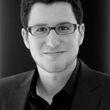Zero to One: Notes on Startups, or How to Build the Future
(Libby/OverDrive eAudiobook)
Available Platforms
Description
#1 NEW YORK TIMES BESTSELLER • “This book delivers completely new and refreshing ideas on how to create value in the world.”—Mark Zuckerberg, CEO of Meta “Peter Thiel has built multiple breakthrough companies, and Zero to One shows how.”—Elon Musk, CEO of SpaceX and TeslaThe great secret of our time is that there are still uncharted frontiers to explore and new inventions to create. In Zero to One, legendary entrepreneur and investor Peter Thiel shows how we can find singular ways to create those new things.Thiel begins with the contrarian premise that we live in an age of technological stagnation, even if we’re too distracted by shiny mobile devices to notice. Information technology has improved rapidly, but there is no reason why progress should be limited to computers or Silicon Valley. Progress can be achieved in any industry or area of business. It comes from the most important skill that every leader must master: learning to think for yourself.Doing what someone else already knows how to do takes the world from 1 to n, adding more of something familiar. But when you do something new, you go from 0 to 1. The next Bill Gates will not build an operating system. The next Larry Page or Sergey Brin won’t make a search engine. Tomorrow’s champions will not win by competing ruthlessly in today’s marketplace. They will escape competition altogether, because their businesses will be unique.Zero to One presents at once an optimistic view of the future of progress in America and a new way of thinking about innovation: it starts by learning to ask the questions that lead you to find value in unexpected places.
More Details
Excerpt
Similar Titles From NoveList
Published Reviews
Booklist Review
*Starred Review* A self-professed contrarian and proud of it, PayPal cofounder Thiel riffs on a series of his lectures given at Stanford. His major contention? That copycats are not what America needs, calling for, instead, those entrepreneurs who'll challenge convention and build a different, better world. As proof, he dissects, in some details, the dot.com boom and contrasts its faux learnings (e.g., make incremental advances) from the truth better to risk boldness than triviality. Why monopolies, beginning with small market/niche domination, will win. The mechanics of cofounders and establishing a company cult. An investigation into the failures of clean tech with one notable exception: Tesla. The one question to ask: What valuable company is no one building? Thiel pokes at and prods every corner of business, from recruiting to advertising and competition, never shy about his opinions. Two samples: Too many people are starting their own companies today and All Rhodes scholars had a great future in their past. Irreverent, with the disclaimer that truth can be stranger than fiction.--Jacobs, Barbara Copyright 2014 Booklist
Publisher's Weekly Review
In his first book, PayPal cofounder Thiel presents a series of musings-for example,Doing what we already know how to do takes the world from 1 to n, adding more of something familiar. But every time we create something new, we go from 0 to 1-rather than a cohesive narrative. He begins with promise, drawing a strict distinction between horizontal progress-making more of what already exists in the world-and vertical progress-creating something entirely new. To accomplish the latter, he proposes, more businesses need to think like startups. From there, the text sprawls wildly from one subject to the next, with periodic references to PayPals evolution as the main recurring motif. His provocative central premise is that successful businesses should strive to be monopolies-that readers should build something singular and exciting enough that it will be the only one of its kind. Though the book is presented as an instructional guide, it gives the reader little to take away. A brief meditation on the lessons of the dot-com bust (make incremental advances, stay lean and flexible, improve on the competition, focus on product, not sales) offers standard truisms rather than practical insights. Thiel touches on how to build a successful business, but the discussion is too abstract to offer much to the next Steve Jobs-or Peter Thiel. (Sept.) (c) Copyright PWxyz, LLC. All rights reserved.
Kirkus Book Review
Legendary startup icon and venture capitalist Thiel and Masters reveal how they succeed with startups and why business school graduates most often do not. Known as a co-founder of Paypal and early investor in Facebook and SpaceX, billionaire Thiel and his former student, Masters, are not offering tips on becoming superrich. Surprisingly, they are contemptuous of finance, which they call "the only way to make money when you have no idea how to create wealth." They offer an older model of business based on the potential earnings foreseeable as a by-product of the transformations associated with leaps in technology into unserved spaces in human activity. Paypal and Facebook are good examples. The authors distinguish their own thinking and methods from the orthodoxies of the financial and business communities. Lively and often acerbic, Thiel and Masters leave many of today's business shibboleths trashed along the way. They are unabashed proponents of monopoly to control and secure profit for reinvestment, and they assert, agreeing with thinkers like Walter Lippmann, that "[c]apitalism is premised on the accumulation of capital, but under perfect competition all profits get competed away." In their view, monopoly is how technological innovators successfully change the rules with order-of-magnitude improvements instead of incremental advances. Thiel and Masters provide rules of thumb and case studies drawn from experiences, all bound up with their radically different business methods and practices. Their views on viral marketing and the importance of sales will be of interest to aspiring entrepreneurs, as will their dismissal of current ideas of market and technological disruption. They don't hide their dislike of the use of stock options as incentives for business leadership. Forceful and pungent in its treatment of conventional orthodoxiesa solid starting point for readers thinking about building a business. Copyright Kirkus Reviews, used with permission.
Booklist Reviews
*Starred Review* A self-professed contrarian and proud of it, PayPal cofounder Thiel riffs on a series of his lectures given at Stanford. His major contention? That copycats are not what America needs, calling for, instead, those entrepreneurs who'll challenge convention and build a different, better world. As proof, he dissects, in some details, the dot.com boom and contrasts its faux learnings (e.g., make incremental advances) from the truth—better to risk boldness than triviality. Why monopolies, beginning with small market/niche domination, will win. The mechanics of cofounders and establishing a company cult. An investigation into the failures of clean tech—with one notable exception: Tesla. The one question to ask: What valuable company is no one building? Thiel pokes at and prods every corner of business, from recruiting to advertising and competition, never shy about his opinions. Two samples: "Too many people are starting their own companies today" and "All Rhodes scholars had a great future in their past." Irreverent, with the disclaimer that truth can be stranger than fiction. Copyright 2014 Booklist Reviews.
Library Journal Reviews
In this thought-provoking read, the authors ask readers to reconsider entrenched ideas about how we look at the economics and philosophy of small business.
[Page 54]. (c) Copyright 2016 Library Journals LLC, a wholly owned subsidiary of Media Source, Inc. No redistribution permitted.Publishers Weekly Reviews
In his first book, PayPal cofounder Thiel presents a series of musings—for example,"Doing what we already know how to do takes the world from 1 to n, adding more of something familiar. But every time we create something new, we go from 0 to 1"—rather than a cohesive narrative. He begins with promise, drawing a strict distinction between horizontal progress—making more of what already exists in the world—and vertical progress—creating something entirely new. To accomplish the latter, he proposes, more businesses need to think like startups. From there, the text sprawls wildly from one subject to the next, with periodic references to PayPal's evolution as the main recurring motif. His provocative central premise is that successful businesses should strive to be monopolies—that readers should build something singular and exciting enough that it will be the only one of its kind. Though the book is presented as an instructional guide, it gives the reader little to take away. A brief meditation on the lessons of the dot-com bust ("make incremental advances," "stay lean and flexible," "improve on the competition," "focus on product, not sales") offers standard truisms rather than practical insights. Thiel touches on how to build a successful business, but the discussion is too abstract to offer much to the next Steve Jobs—or Peter Thiel. (Sept.)
[Page ]. Copyright 2014 PWxyz LLCReviews from GoodReads
Citations
Thiel, P., & Masters, B. (2014). Zero to One: Notes on Startups, or How to Build the Future (Unabridged). Books on Tape.
Chicago / Turabian - Author Date Citation, 17th Edition (style guide)Thiel, Peter and Blake Masters. 2014. Zero to One: Notes On Startups, or How to Build the Future. Books on Tape.
Chicago / Turabian - Humanities (Notes and Bibliography) Citation, 17th Edition (style guide)Thiel, Peter and Blake Masters. Zero to One: Notes On Startups, or How to Build the Future Books on Tape, 2014.
Harvard Citation (style guide)Thiel, P. and Masters, B. (2014). Zero to one: notes on startups, or how to build the future. Unabridged Books on Tape.
MLA Citation, 9th Edition (style guide)Thiel, Peter, and Blake Masters. Zero to One: Notes On Startups, or How to Build the Future Unabridged, Books on Tape, 2014.
Copy Details
| Collection | Owned | Available | Number of Holds |
|---|---|---|---|
| Libby | 4 | 0 | 3 |



































